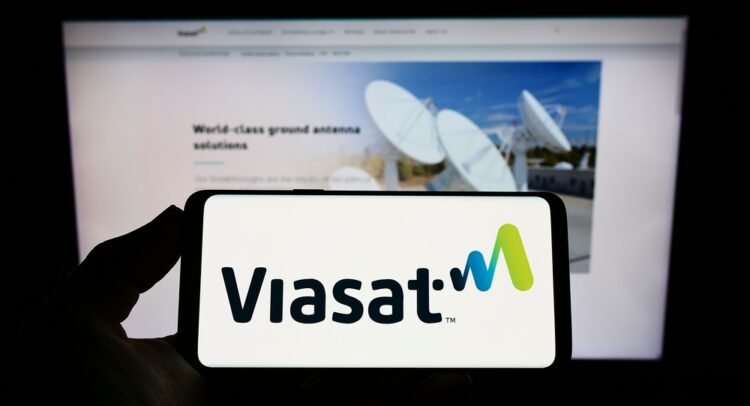Viasat (NASDAQ:VSAT) plummeted in trading after the company swung to a loss in the Fiscal fourth quarter and released a disappointing outlook. The communications company reported an adjusted loss of $0.24 per share in Q4, compared to earnings of $0.17 in the same period last year. This missed Street estimates of earnings of $0.47 per share. The company incurred a loss in Q4, primarily as a result of rising interest expenses due to its Inmarsat acquisition. Viasat had assumed $3.4 billion of Inmarsat’s net debt as a part of this acquisition in 2021.
However, VSAT’s revenues surged by 73% year-over-year to $1.15 billion in Q4, beating analysts’ estimates of $1.1 billion.
Viasat’s FY25 Outlook
Looking forward, the company expects its FY25 revenues to be flat year-over-year, while adjusted EBITDA is likely to grow in the low to mid-single digits. More disappointingly, VSAT has projected its satellite service revenues to decline in the low to mid-single digits in FY25.
Revenue from the company’s satellite services is an important component of its total revenues and contributed more than 40% to VSAT’s total revenues of $1.15 billion in Q4.

Is VSAT a Good Stock to Buy?
Only one analyst has covered VSAT stock over the past three months and has given the stock a Hold rating, with a VSAT price target of $28, implying an upside potential of 72.6% from current levels. Year-to-date, VSAT stock has plunged by more than 40%.

















